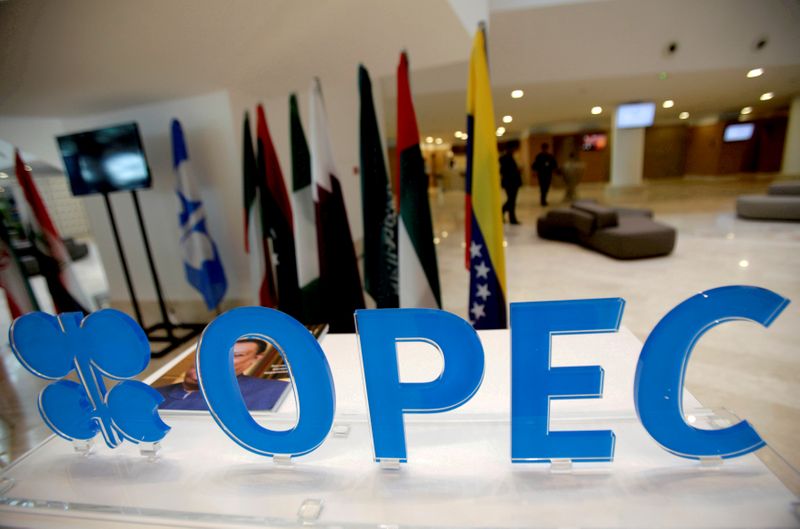By Alex Lawler, Ahmad Ghaddar and Olesya Astakhova
LONDON/MOSCOW (Reuters) -OPEC+'s decision on Monday to stick with a plan to raise oil output modestly and gradually, despite prices surging to multi-year highs, was partly driven by concern that demand and prices could weaken, sources close to the group told Reuters.
The other big reason is money. After seeing their income slide during the pandemic-induced demand and price collapse in 2020, the OPEC+ oil producers' alliance led by Russia and top exporter Saudi Arabia are enjoying the boost in revenues, three OPEC+ sources said.
OPEC+ brought in record production cuts of about 10 million barrels per day (bpd) in April 2020, or about 10% of global output, after restrictions around the world to curb the spread of the coronavirus paralysed oil demand and hit prices hard.
"Everyone is happy," an OPEC+ delegate said of the current oil price level, declining to be identified by name.
OPEC+ has faced calls this year from consumers, such as the United States and India, for extra supply. The group, sources said, was considering a larger boost of 800,000 bpd - almost 1% of world output, ahead of Monday's meeting.
But by Monday morning, the signals from OPEC+ sources ahead of their virtual meeting later that day had changed. The most likely outcome was that OPEC+ would stick to the existing plan to hike output by 400,000 bpd.
"Based on past lessons, OPEC is more cautious because any hasty decision can lead to a sharp drop in oil prices," said an OPEC+ source, explaining the reasons not to increase output further.
"So the political pressure of the United States and others has not yet been effective in changing this strategy."
OPEC+ is mindful, sources say, of the prospect that prices can reverse gains just as quickly. This happened in 2018 when Brent crude fell from above $85 in October to below $50 by the end of the year.
"The oil market is still fragile and there is no guarantee of stable prices," the OPEC+ source said.
COVID CONCERN
Another OPEC+ source had said before Monday's meeting the group had faced pressure to ramp up production faster, but added: "We are scared of the fourth wave of corona, no one wants to make any big moves."
Concern was also expressed by some members of the group that a further boost in output could upset next year's market balance - which OPEC+ already sees as surplus - and risk building up inventories to above the five-year average in the second half, another source said.
Oil rose above $81 on Monday after OPEC+ stuck with its plan, and has surged even higher in the aftermath of the decision, reaching almost $84 on Wednesday.

The extra income for OPEC members will help to ease the pain of last year's price plunge. OPEC earned $321 billion in 2020 from petroleum exports, down 43% from 2019, based on OPEC's Annual Statistical Bulletin.
"For us Iraqis, with a 40 million population and we depend on oil for 85% of our revenue, we hope it reaches $120!," Iraq's oil minister Ihsan Abdul Jabbar joked at the Energy Intelligence Forum on Wednesday, before saying that $75-$80 was a fair price for consumers and producers.